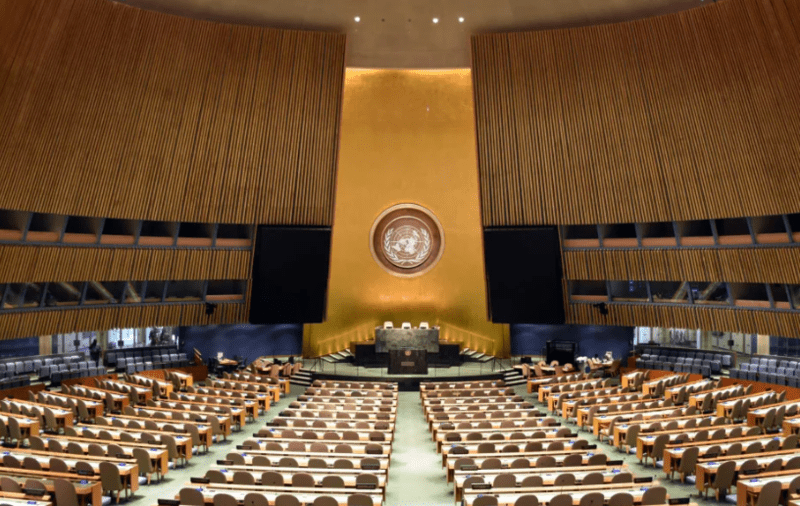UN adopts July 7 as World Kiswahili Day

The resolution acknowledges the significant role of the Kiswahili language in fostering peace, unity, socio-economic development, and cultural diversity.
The United Nations General Assembly has adopted a historic resolution, tabled by Kenya and Tanzania on behalf of the African Group, proclaiming July 7 as World Kiswahili Language Day. This resolution promotes multilingualism as a core value of the United Nations.
The resolution acknowledges the significant role of the Kiswahili language in fostering peace, unity, socio-economic development, and cultural diversity. It also highlights Kiswahili's contribution to creating awareness and facilitating dialogues among diverse populations.
More To Read
- UN hails DR Congo-Rwanda peace deal amid ongoing hostilities in the east
- UN Rights Chief raises alarm over abductions, enforced disappearances in Uganda ahead of elections
- AU calls for Africa’s permanent seat on UN Security Council
- Why UN’s gradual move back to Khartoum, Sudan is ‘an important step’
- Sudan conflict is spreading to South Sudan, hurting oil trade and border stability - UN
- Kenya assumes chairmanship of African Group at UN, pledges unity and reform
Kiswahili is one of the 10 most widely spoken languages globally, with hundreds of millions of speakers across sub-Saharan Africa. It ranks among the top 10 most widely spoken languages globally, with over 200 million speakers.
Serving as a lingua franca, it is commonly used in East, Central, and Southern Africa, as well as in the Middle East. Kiswahili is also taught in major universities and colleges worldwide.
As one of the official languages of the African Union (AU), the Southern African Development Community (SADC), and the East African Community (EAC), Kiswahili is an essential tool for achieving the Sustainable Development Goals 2030 and facilitating regional integration, particularly through the African Continental Free Trade Agreement (ACFTA).
In the 1950s, the United Nations established the Kiswahili language unit within United Nations Radio. Today, Kiswahili remains the only African language within the Directorate of Global Communications at the United Nations.
Other Topics To Read
Top Stories Today














































